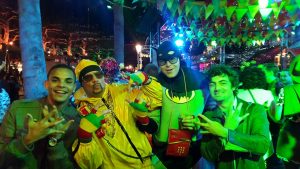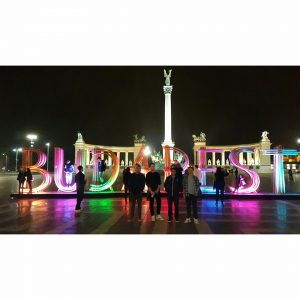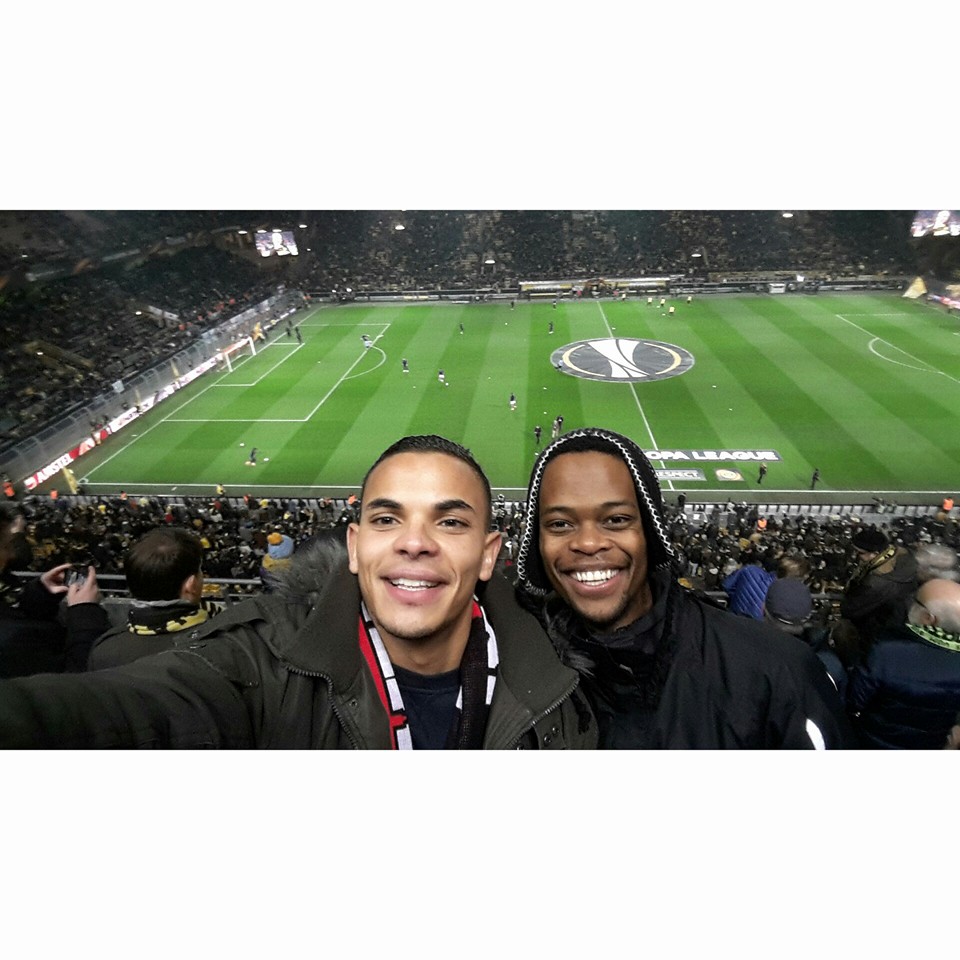Pre-Departure:
The administration process can be arduous and time-consuming but the international office really does make it easy for you, yours is just to try and complete everything as soon as possible. I remember looking at what was required, and then looking at the deadline for handing in, and thinking I had way more time than I actually did. When it came down to it, I was really pressed for time and there are a few things that I overlooked that almost cost me my trip.
Accommodation:
Accommodation for exchange students at UM is typically facilitated through the “UM Guesthouse”. Almost all exchange students you meet will probably be staying there. Their website is really easy to use. You just need to sign-up, sift through the options available (in accordance with the funding guidelines) and make your pick. I would suggest taking a look at where the accommodation is located prior to making a decision as you may find yourself quite far away from campus and the city centre.
I stayed at Vijverdalseweg 8 (aka Avant-garde) and I thoroughly enjoyed it. It ended up being about a 10-15 minute cycle into town which really wasn’t that far, but upon arrival I was quite taken aback as I assumed that I would be really close to campus. Many students are put up at the actual guesthouse which is in the city centre and very close to campus, but space is likely limited so it’s important you secure your spot early. As I mentioned earlier, it really wasn’t that far but on cold and rainy days that 10-15 minute can feel like forever!
Avant-garde was a really cool place to live. Each person had their own, quite spacious room with a bathroom and you’re provided with all the essentials – a bed, desk, chair and lamp and more than enough cupboard space. You share a floor with about 15-20 others and have a communal kitchen and laundry facilities (prepare yourself for the dirty dishes and sometimes crowded kitchen). Each floor also has a small common room and the building itself has its own large common room downstairs where most of the resident socials and parties take place. The people you live with really do become your family and if you’re lucky you’ll have the best of times with them.

Visa:
Remember when I said I overlooked a few things and it almost cost me my trip? I was talking about the visa application process. This is mostly my fault as I misread something in the initial document sent by the visa office at UM and I had the impression that they were taking care of everything – I know, not my finest moment. As a result, I was way behind schedule and had to rush to get all the documents together on time. The visa office at UM is also very helpful, but you’ll find that when you’re applying for your visa, everyone else is, so they can take up to five working days just to reply your emails. To avoid delays and potential mishaps, read carefully through the requirements and stick to all the guidelines!!
When I received notice that my visa application had been accepted and processed, the next step was to visit the local embassy and get them to place the actual visa in my passport. Make sure you visit the embassy website as soon as you receive this information, because I delayed, and when I eventually tried to make a booking, 3 weeks before my departure, I found out that the first available slot for a meeting was 8 weeks away. Nightmare! Luckily, the Dutch Embassy in Pretoria were very understanding of the urgency of the matter and they managed to get me a meeting 2 days later. It takes a few days (around a week) for this last step of the visa process, so take that into account when you set your meeting.
Experience at the Host University:
Maastricht:
Maastricht truly is a beautiful city. The city centre is packed with cafés, restaurants and loads of stores all over. When the sun is out, Vritjhof (the city centre) is bustling with locals eating waffles or having a beer or two in the late afternoon. The city is small and everything is quite easily accessible.
It’s essential that you get a bike as soon as possible as – although the public transport system is extremely efficient – it is quite costly to use the busses on a day-to-day basis. It’s smarter to buy a second-hand bike as there is a good chance that it gets stolen (I know, who would’ve thought they steal stuff in Europe) and you’re also not there for that long. I bought mine for €75.00 through Jules Maastricht – you can find them on Facebook. I also managed to sell it just before I left, so it ended up being quite a good investment.
Make sure you partake in all the city’s events and attractions such as Carnaval which takes place in early February. The whole town shuts down for what becomes a massive street party with huge floats, processions and a sea of people – both young and old – dressed up in the traditional Carnaval colours or some other outrageous costume. Make sure you get involved, dress-up and take it all in.
Academics:
I really enjoyed the courses I took while at UM. The campus is similar to Stellenbosch in that faculties are spread all over the city. As I was studying towards my Masters degree in Economics, all my lectures were held at the School of Business and Economics (SBE). The level of difficulty was not dissimilar to SU, but UM is quite distinct in that students learn using a system known as problem-based learning (PBL).
The PBL system in essence ventures away from “traditional” lecturing and tries to ensure that students are constantly participating, and engaging with the subject matter. Lectures are typically substituted for tutorials in which you have to either be a part of, or leading the discussion each week. This means you have to come prepared for each class and you can’t coast by and try to blend in with the shadows, as tutorial classes are small (not more than 10 students per class) and everyone must contribute to the discussion. However, if you diligently do your readings and prepare in time it really can be a fruitful experience as you get the opportunity to engage with highly intelligent individuals from all over the world.
Travel:
While you’re on exchange, try your best to travel as much as possible! Plan ahead, try and get a group together, as it sometimes ends up being cheaper, and visit as many places as you can. I travelled to a few cities in Belgium (it’s extremely close to Maastricht), all over the Netherlands, Budapest (which was brilliant) and a few cities in Germany. My only regret is that I didn’t travel more. Pen down the places you really want to see and plan smart and it can really be quite cost-effective and definitely worth it.

Returning to South Africa:
Coming home really was bittersweet. Five months absolutely flew by! Many have asked me if I would’ve stayed longer if I could or would I work/settle there if I had the opportunity and my reply has always been “yes” and “no”. I thoroughly enjoyed my experience abroad and would have loved to stay longer, but at the same time, the five months really were packed with experiences that I will carry with me for the rest of my life and I feel it was just the right amount of time. It is now time for me to settle into the working world and I think there’s no better place to do that than right back at home. I feel that we’re privileged to have the education that we do from a world-class institution like SU and it’s our duty to use the skills we’ve accumulated to benefit us and others right here in SA, where it’s needed most.
Since I’ve been back I’ve started working while juggling my thesis on the side, which is due before the end of the year. I’ve moved back home for now and am in correspondence with my supervisor at SU from this side. I miss everyone I met while away but it was also really good to be back home with family and friends again.
I honestly don’t have one negative thing to say about my time away. If you have the opportunity to go you should grab it! It will be some of the best few months of your life!
Top Tips:
- Make sure you Google where your accommodation is.
- Buy a cheap bike as soon as possible.
- Buy your groceries at Albert Heijn and get a bonus card as it can save you loads. If you eat at home and cook with the people you live with it could cost as little at €20-25 a week for food.
- Prepare yourself for the cold – I experienced a 30⁰C drop in temperature.
- Make sure to inform your bank that you’ll be overseas. Ensure that your “one-time pin” settings or anything else that could affect your transactions can be facilitated by you while you’re abroad (i.e. via email).
- Open an ING bank account. This is the cheapest option as you avoid all the costs associated with using your local bank in SA. It also helps to have a Dutch account for when you want to buy train or plane tickets, and more.
- Engage with the people you meet and learn more about other cultures. I met people from all parts of the world and it’s amazing how little they know about Africa and South Africa, and at the same time, how little I knew about their cultures.
- Travel, enjoy, and do as much as possible because those 6 months fly by!

